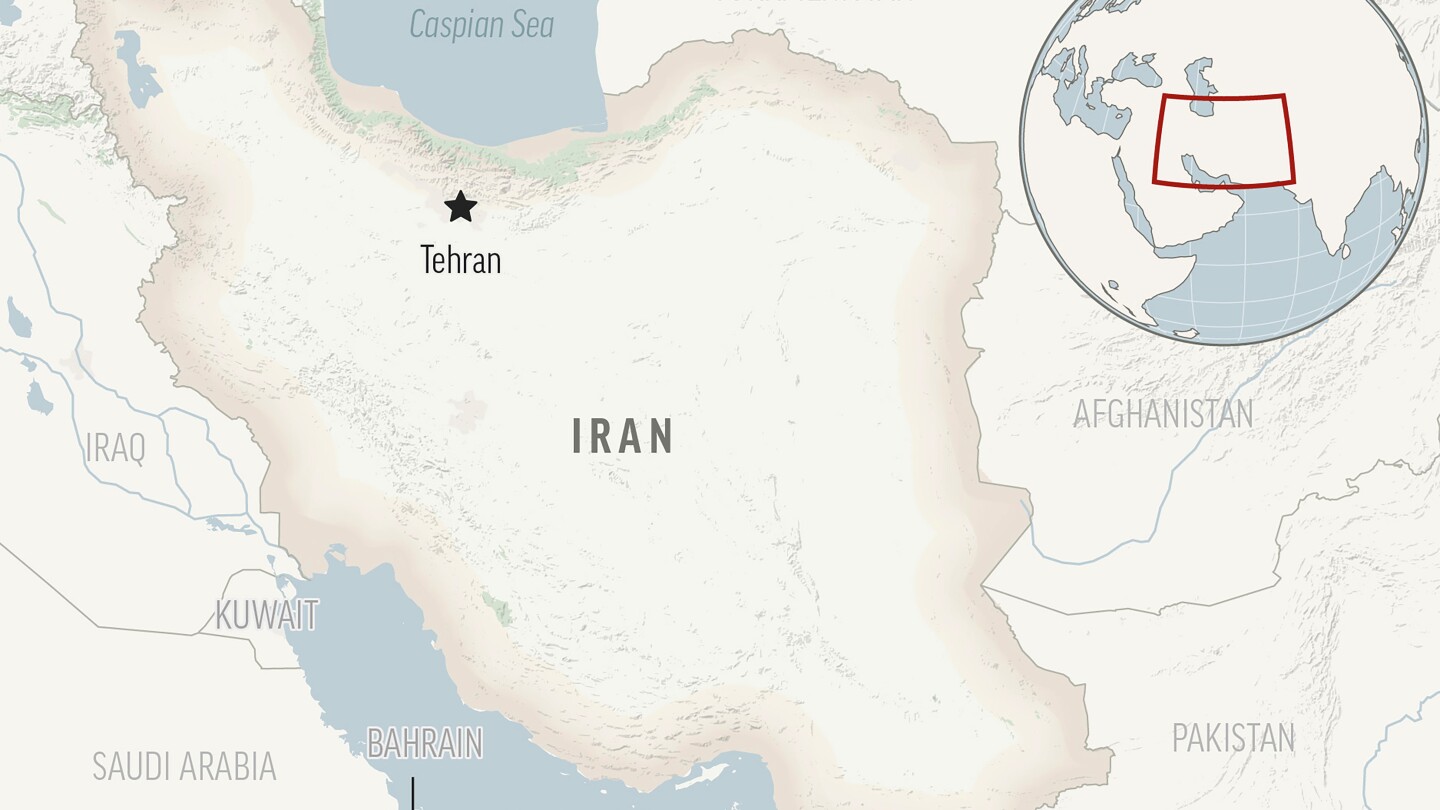DUBAI, United Arab Emirates (AP) — Iran and Sweden carried out a prisoner swap Saturday that saw Tehran release a European Union diplomat and another man for an Iranian convicted in Stockholm of committing war crimes over his part in 1988 mass executions in the Islamic Republic.
The arrest of Hamid Nouri by Sweden in 2019 as he traveled there as a tourist likely sparked the detentions of the two Swedes, part of a long-running strategy by Iran since its 1979 Islamic Revolution to use those with ties abroad as chip in negotiations with the West.
As Iranian state television claimed without evidence that Nouri had been “illegally detained,” Swedish Prime Minister Ulf Kristersson described the detentions of diplomat Johan Floderus and Saeed Azizi as a “hell on earth” the two men faced.
“Iran has made these Swedes pawns in a cynical negotiation game with the aim of getting the Iranian citizen Hamid Nouri released from Sweden,” Kristersson said. “It has been clear all along that this operation would require difficult decisions, now the government has made those decisions.”
Oman, a sultanate on the eastern edge of the Arabian Peninsula, mediated the release, its state-run news agency reported. Oman long has served as an interlocutor between Iran and the West.
In 2022, the Stockholm District Court sentenced Nouri to life in prison over his role in the executions. It identified him as an assistant to the deputy prosecutor at the Gohardasht prison outside the Iranian city of Karaj.
The 1988 mass executions came at the end of Iran’s long war with Iraq. After Iran’s then-Supreme Leader Ruhollah Khomeini accepted a United Nations-brokered cease-fire, members of the Iranian opposition group Mujahedeen-e-Khalq, heavily armed by Saddam Hussein, stormed across the Iranian border in a surprise attack.
Iran ultimately blunted their assault, but the attack set the stage for the sham retrials of political prisoners, militants and others that would become known as “death commissions.”
International rights groups estimate that as many as 5,000 people were executed. Iran has never fully acknowledged the executions, apparently carried out on Khomeini’s orders, though some argue that other top officials were effectively in charge in the months before his 1989 death.
Late Iranian President Ebrahim Raisi, killed in a helicopter crash in May, also was involved in the mass executions.
Floderus’ family said he was arrested in April 2022 at the Tehran airport while returning from a vacation with friends. Floderus had been held for months before his family and others went public with his detention.
Azizi’s case was not as prominent as Floderus’. In February, the group Human Rights Activists in Iran reported that the dual Iranian-Swedish national had been sentenced to five years in prison by Tehran’s Revolutionary Court on charges of “assembly and collusion against national security.” The group said Azizi has cancer.
The EU’s top diplomat, Josep Borrell, praised the release of the two men.
“Other EU citizens are still arbitrarily detained in Iran,” he wrote on the social platform X. “We’ll continue to work for their freedom together” with other EU states.
Iran long has contended it doesn’t hold prisoners to use in negotiations, despite years and multiple swaps with the U.S. and other nations showing otherwise.
___
Associated Press writers Amir Vahdat in Tehran, Iran, and Jari Tanner in Helsinki contributed to this report.

